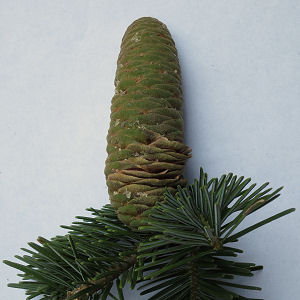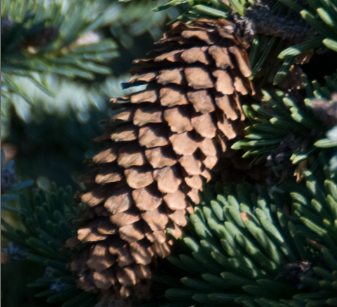What is a conifer? A dictionary will tell you the obvious: A conifer is a tree or shrub bearing cones. There are always exceptions, but this definition will work in most cases. Conifers are easy to identify, but so many conifers look alike that it is often difficult to identify the different species. The cones can be a useful way to identify each species. Many conifers drop their cones on the ground after dispersing the seeds. Some keep them on the tree for an extended time.
Cones of common conifers in Northwest Oregon
Note the unique three-pointed bracts protruding from the scales.
 |
| Grand fir |
 |
| Noble fir |
At the coast...
Questionable cones...
Like juniper cones, Pacific yew cones don't look like cones at all. They have a single seed surrounded by a single sweet, fleshy scale. Also like juniper cones, birds distribute the seeds. Yew cones are usually called arils.
 |
| Sitka spruce |
 |
| Shore pine (lodgepole pine) |
Questionable cones...
Millions of years before flowering plants started growing tempting fruits to entice animals to distribute their seeds, conifers developed the same ability by growing succulent cones. For example, the scales on juniper cones merge to form a fleshy berry-like cone that attracts birds. Many bird species happily eat the berries and distribute the seeds of the juniper. Millions and millions of years later one animal species disrupted this cooperative system by using these juniper "berries" to flavor gin.
 |
| Western juniper |
Like juniper cones, Pacific yew cones don't look like cones at all. They have a single seed surrounded by a single sweet, fleshy scale. Also like juniper cones, birds distribute the seeds. Yew cones are usually called arils.
Not a cone. This is what happens when tiny aphid-like insects (adelgids) attack new growth on a Sitka spruce









No comments:
Post a Comment